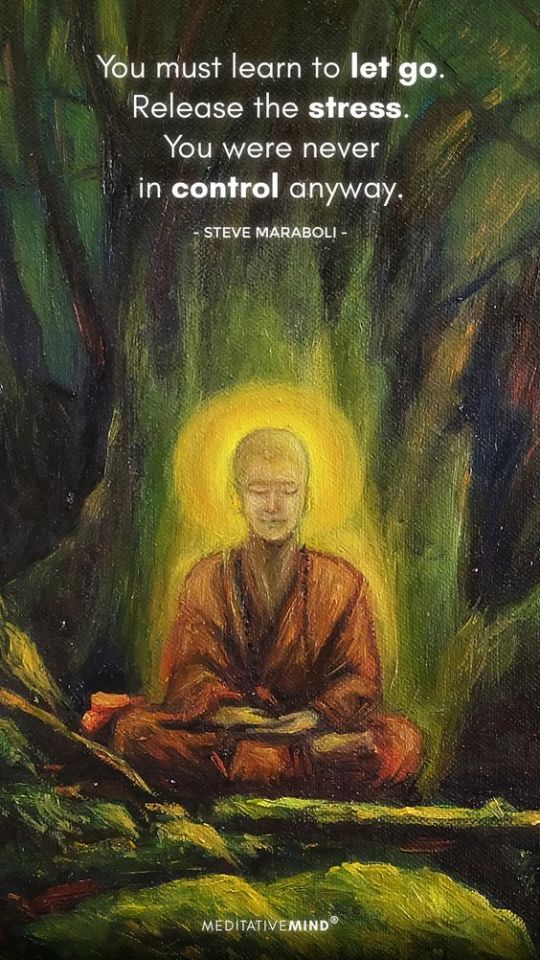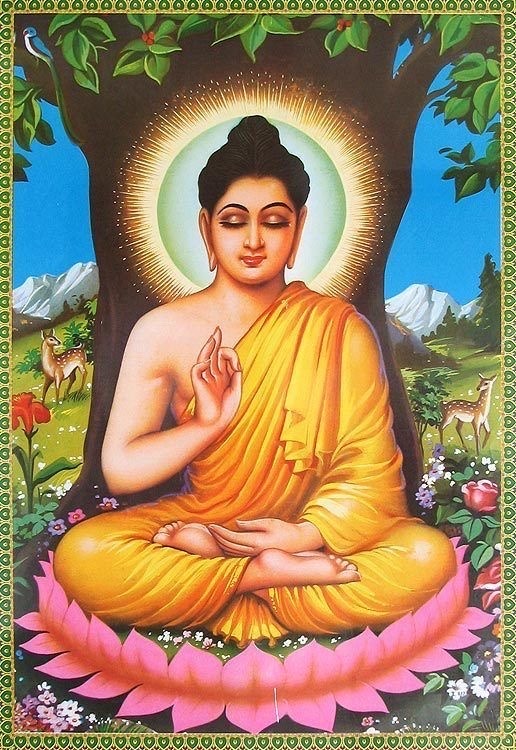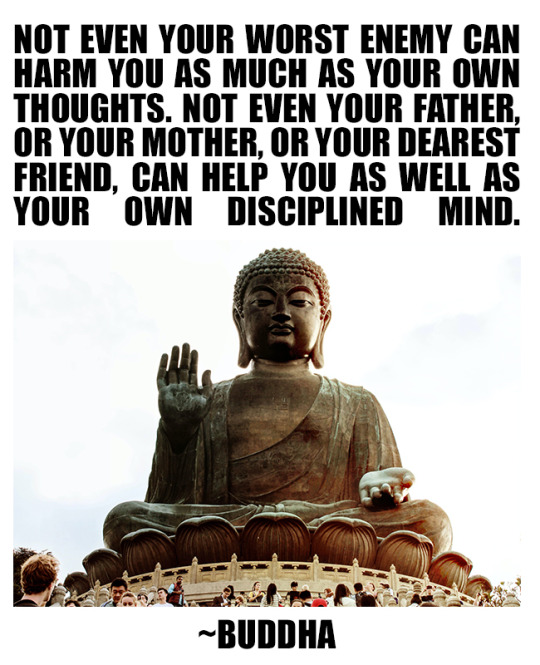#Buddhist quotes
Text
"You must be broad-minded and whole without relying upon others. An upright, independent spirit knows how to avoid degrading situations." - Hongzhi Zhengjue (1091-1157)
#buddhism#zen#buddhist#innerpeace#buddha#buddhism quotes#zenquotes#dharma#buddhist quotes#spirituality#meditation#meditate
67 notes
·
View notes
Text

113 notes
·
View notes
Text
初心 (sho-shin) "Beginner’s mind"

Approach every task as if you were doing it for the first time.
"Sho-shin" is the zen attitude that by looking at every task with the eyes of a beginner, you can keep your mind sharp and open.
When engaging in something in which we consider ourselves an expert, there is the danger of becoming bored, jaded and cynical.
However, if we approach even mundane tasks from a position of playfulness and humble naivety we can rediscover our spark of interest, and perhaps think of new and creative ways to live.
This concept was popularised outside of Japan by the famous Zen priest Shunryū Suzuki's 1970 book Zen Mind, Beginner's Mind.
#japan#japanese#japanese language#japanese langblr#japaneseart#japanesequote#japanesequotes#kanji#kanji art#japanesecalligraphy#japanesecalligrapher#書道#japanese culture#calligraphy#asianart#buddhism#buddhismquotes#buddhist#buddhist sayings#buddhist quotes#zen#zen quotes#inspiring quotes#inspirational quotes
112 notes
·
View notes
Text
Any practice that helps you, is by its nature a good practice.
It doesn't matter if it originates from a different school of the Dharma or if it is something you have come up with yourself, because the Dharma does not have a boundary.
If it is done in the spirit of seeking truth, and alleviation of suffering then it is a good practice.
29 notes
·
View notes
Text
“Radiate boundless love towards the entire world.”~ Buddha
4 notes
·
View notes
Text
Just as a storm cannot prevail against a rocky mountain, so Mara can never overpower the man who lives meditating on the impurities, who is controlled in his senses, moderate in eating, and filled with faith and earnest effort.
— Dhammapada ch 1,8

#buddha#quotes#buddhism#buddhist#buddhist quotes#verses#religion#truthbetold#religious#art#inspirational words#true words#beautiful words#kind words#wordsnquotes#writerscorner#believe#belief#it's true#lord buddha#tripitaka
10 notes
·
View notes
Text
“In the Vimamsaka Sutta, the Buddha encouraged the prospective disciple to carefully examine a teacher before committing oneself to him or her, and to carry out this examination over a period of time. The purpose of such examination is to allow the disciple to see if the teacher has the attainments they claim to have and that they practice what they preach.
It is increasingly difficult to do this with most teachers nowadays. Most are surrounded by (or surround themselves with) an ‘inner circle’ who jealously guard their position by trying to keep everyone else in the ‘out group.’ Should you penetrate this barrier you are made to think how privileged you are to have been able to meet ‘His Holiness,’ ‘Guruji,’ ‘The Master,’ ‘Rimpoche.’
Long before you even see the teacher or hear him or her speak, slick brochures, personal endorsements and grandiose titles set the tone. So when the big moment comes, you don’t know whether you are experiencing what’s there or what you were told would be there.”
“Vimala Thaka” by Bhante Shravasti Dhammika
5 notes
·
View notes
Text

Wood burning affirmations: the closest you can legally get to actually searing it in your memory
#my artwork#my art#wood burning art#wood burn#wood burning#affirmations#affirmation#buddhist#buddhism#zen quotes#buddhist quotes#recovery#mental health#mental heath support#mental health recovery#inspiration#inspirational#mental health advocate
4 notes
·
View notes
Text

#memesdaily#tumblr memes#best memes#motivating quotes#ancient wisdom#still the truth#truth be told#truthseeker#buddhism#shakyamuni buda#buddhist quotes
21 notes
·
View notes
Text

— The Dhammapada, translation by Thanissaro Bhikkhu
16 notes
·
View notes
Text
"On reaching empty, frozen silence, there is no duality between noise and quiet." - Yuanwu Keqin (1063-1135)
#buddhism#zen#buddhist#innerpeace#buddha#buddhism quotes#zenquotes#dharma#buddhist quotes#spirituality#spiritualgrowth#spirtuality#spiritual awakening#spiritual#wisdom#meditation#mindfulness#meditate
46 notes
·
View notes
Text

71 notes
·
View notes
Text
I was reading a book on Buddhism, years ago. It had in it a discussion of joy and appreciation of beauty, especially in nature. It said something like, if you can look at a flower, and see only the flower and love/appreciate it for its beauty and the joy it brings you, without feeling the need to justify your happiness by saying "the flower is like God's beauty" or "the flower is like love for children" or whatever else, then you have true/healthy religion. I think it was a book on Zen but I'm not positive.
Does anyone know what I'm talking about? I'm tagging this with Buddhist tags not to be annoying but in hopes someone knows what I'm on about. If you can direct me to the quote source much thanks to you!
1 note
·
View note
Text
TSONGKHAPA
Three Principal Aspects of the Path, Verse 11
For as long as the understanding of appearances
—unfailing interdependence—
And emptiness
—the freedom from all assertions—
Appear to be in conflict, for that long
There can be no realization of Śākyamuni’s intent.
0 notes
Text

Religious Studies Term Of The Day: Dharma (Sanskrit), Dhamma (Pali)
#religiousstudies#religious studies#religion#religiousliteracy#religions#women and religious traditions#leona m anderson#pamela dicky young#Eva k neumaier#oxford#buddhist wisdom#buddhist teachings#buddhist#buddhism#dharma#dhamma#sanskrit#Pali#buddha#buddhist quotes#factsdaily#factoftheday#fun facts
0 notes
Text

“He who, seeking his own happiness, punishes or kills beings who also long for happiness, will not find happiness after death.” — Dhammapada 10, 131
#lord buddha#buddha#buddhism#art#dhammapada#buddhist quotes#buddhist#life#lifestyle#religion#religious#prayer#meditation#nonbinary#inspiration#life quote#belief
5 notes
·
View notes